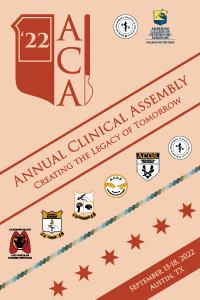Urological Surgery
Long-term characterization of google search volumes and trends from 2004 to 2021 for prostate cancer knowledge, diagnosis, and treatment
Reference 2: Broom, A. (2005). Virtually he@lthy: The impact of internet use on disease experience and the doctor-patient relationship. Qualitative Health Research, 15(3), 325–345. https://doi.org/10.1177/1049732304272916
Reference 3: Davies, N. J., Kinman, G., Thomas, R. J., & Bailey, T. (2008). Information satisfaction in breast and prostate cancer patients: Implications for quality of life. Psycho-Oncology, 17(10), 1048–1052. https://doi.org/10.1002/pon.1305

Zachariah Taylor, DO
Urology Resident
Main Line HealthDisclosure(s): No financial relationships to disclose
- JK
Jessica L. Kim, BS
Student
Philadelphia College of Osteopathic MedicineDisclosure information not submitted.
- PD
- GM
Primary Presenter(s)
Author(s)
Prostate cancer is the most diagnosed cancer in men. As such there is a growing number of resources for prostate cancer that are readily available online and offer a range of information from risk, screening, diagnosis, and treatment to statistics, data, health tips, and support groups. We aim to determine at which point in the diagnosis and treatment course that men seek information from the internet as well as changes in search trends over time.
Methods or Case Description:
Monthly Google Trends data were collected from 2004 to 2021 for prostate cancer-specific terms. Temporal trends were analyzed by comparison of average search volumes indexes (aSVI) as well as analysis with joinpoint software of six-month percent change (6mPC). Chloropleths were created for geographic pattern comparisons.
Outcomes:
Search terms associated with interventions demonstrated the highest average search volume with terms such as “prostate biopsy” (aSVI: 33.59), “prostatectomy” (aSVI: 31.6) and “prostate radiation” (aSVI: 16.45). Further, search terms associated with treatment side effects are increasing at a high rate with “radiation side effects” (21.4 6mPC, p< 0.05) and “prostatectomy side effects” (14.4 6mPC, p< 0.05). PSA-related search terms also demonstrated a strong positive trend on joinpoint analysis with “What is PSA?” (8.9 6mPC, p< 0.05), and “What is normal PSA?” (15.1, p< 0.05) among the most positive changes over the course of the study. Geographic patterns demonstrated generally higher search volumes in the northeast, while the southern region demonstrated relatively higher search volume in regards to treatments and interventions (prostatectomy, radiation, biopsy, etc).
Conclusion:
The internet continues to be a growing part of the dynamics of diagnosing and treating prostate cancer with more men are utilizing the internet each year. We found that men are particularly interested in information pertaining to PSA as well as procedures and interventions affecting the quality of life.
Learning Objectives:
- Upon completion, participant will be able to better understand how the internet is used in relation to prostate cancer diagnosis
- Upon completion, participant will be able to better understand how the internet is used in relation to prostate cancer treatment
- Upon completion, participant will be able to better understand how the internest usage has changed over time in relation to prostate cancer treatment
- Upon completion, participant will be able to better understand how the internet is in different geographic regions
- Upon completion, participant will be able to better understand in which areas patients may benefit most from additional education

